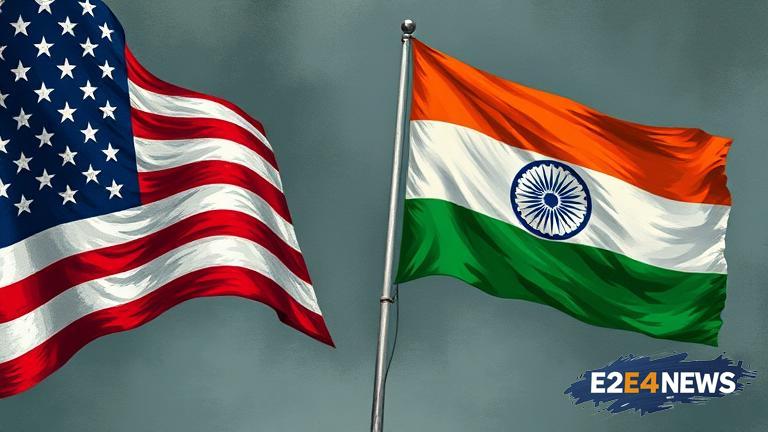The United States has taken a significant step towards imposing additional tariffs on Indian goods, with the release of a draft notice detailing plans to introduce a 25% tariff on certain Indian products. This move is expected to escalate trade tensions between the two nations, which have been simmering for some time. The proposed tariff is in response to India’s alleged failure to provide adequate protection for US intellectual property rights, particularly in the pharmaceutical and technology sectors. The US has long been critical of India’s patent laws and enforcement mechanisms, which it claims are inadequate and discriminatory. The proposed tariff is expected to affect a wide range of Indian goods, including textiles, chemicals, and pharmaceuticals. The move has been met with concern from Indian industry leaders, who fear that it could have a significant impact on the country’s exports to the US. India is one of the largest exporters of goods to the US, with bilateral trade valued at over $100 billion annually. The proposed tariff is also expected to have a negative impact on US businesses that rely on Indian imports, particularly in the technology and pharmaceutical sectors. The US has been seeking greater access to the Indian market for its goods and services, but has been frustrated by India’s restrictive trade policies. The proposed tariff is seen as a way of pressuring India to open up its market and provide greater protection for US intellectual property rights. However, India has responded by saying that it will not be intimidated by the US and will take all necessary measures to protect its interests. The trade tensions between the two nations have been escalating for some time, with the US imposing tariffs on Indian steel and aluminum exports last year. India has retaliated by imposing its own tariffs on US goods, including agricultural products and chemicals. The proposed tariff is expected to further escalate the trade tensions, with potentially significant consequences for bilateral trade and economic relations. The US has said that it will provide a 30-day period for public comment on the proposed tariff, before making a final decision. Indian industry leaders have urged the government to engage in diplomatic efforts to resolve the issue and avoid the imposition of the tariff. The Indian government has said that it will take all necessary measures to protect the interests of Indian industry and exporters. The proposed tariff has also been criticized by US industry leaders, who fear that it could have a negative impact on US businesses that rely on Indian imports. The US has been seeking to reduce its trade deficit with India, which has been growing in recent years. However, the proposed tariff is seen as a blunt instrument that could have unintended consequences for US businesses and consumers. The trade tensions between the two nations have significant implications for the global economy, particularly in the context of the ongoing US-China trade war. The proposed tariff is expected to be closely watched by other countries, particularly those that have significant trade relationships with the US and India. The Indian government has said that it will continue to engage in diplomatic efforts to resolve the issue and avoid the imposition of the tariff. The US has said that it is committed to finding a solution that benefits both countries, but has emphasized the need for India to provide greater protection for US intellectual property rights. The proposed tariff has significant implications for Indian industry, particularly in the pharmaceutical and technology sectors. The Indian government has said that it will take all necessary measures to support Indian industry and exporters, including providing financial assistance and other forms of support. The trade tensions between the two nations have significant implications for bilateral economic relations, particularly in the context of the ongoing US-China trade war. The proposed tariff is expected to be closely watched by other countries, particularly those that have significant trade relationships with the US and India.
